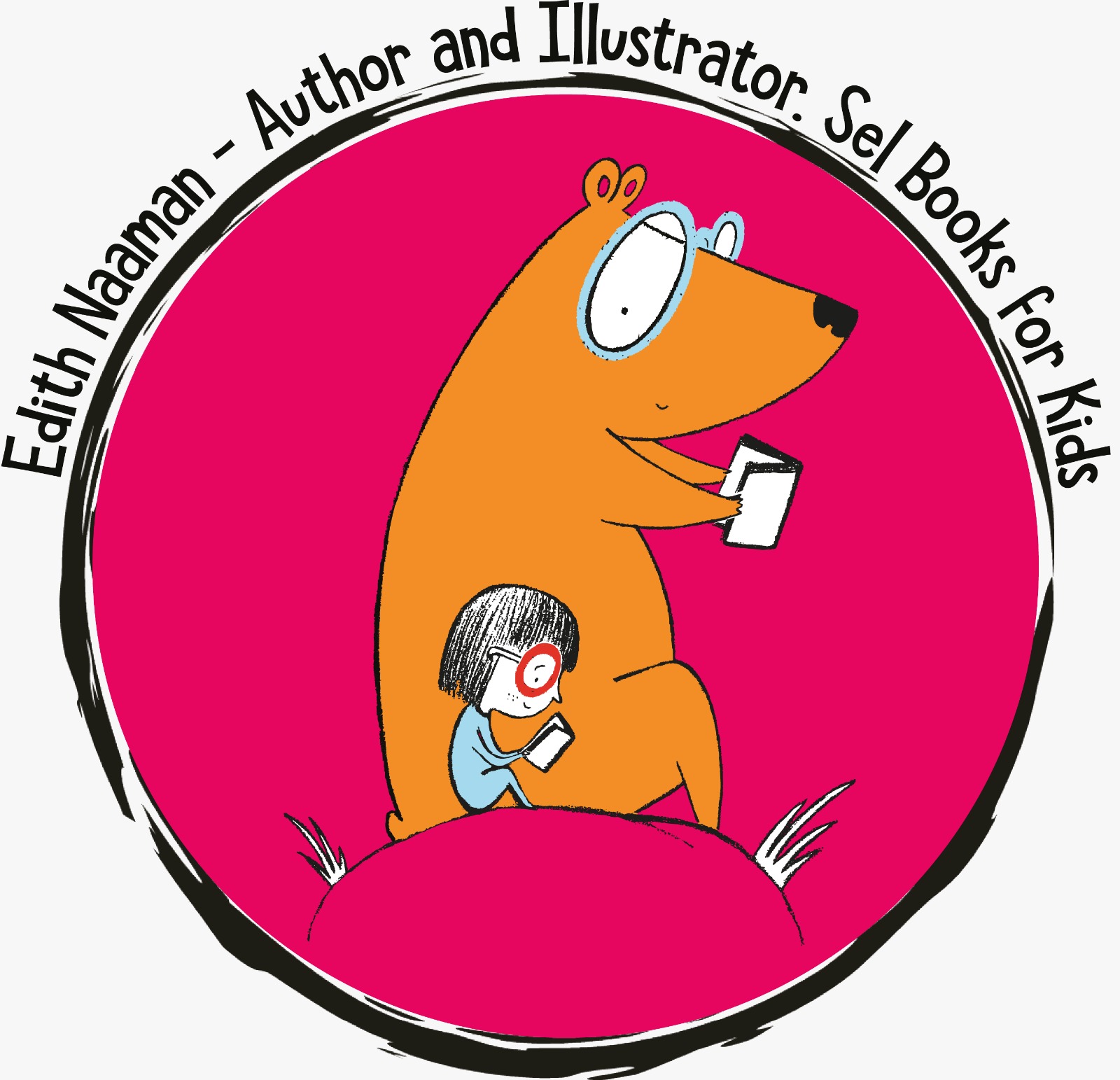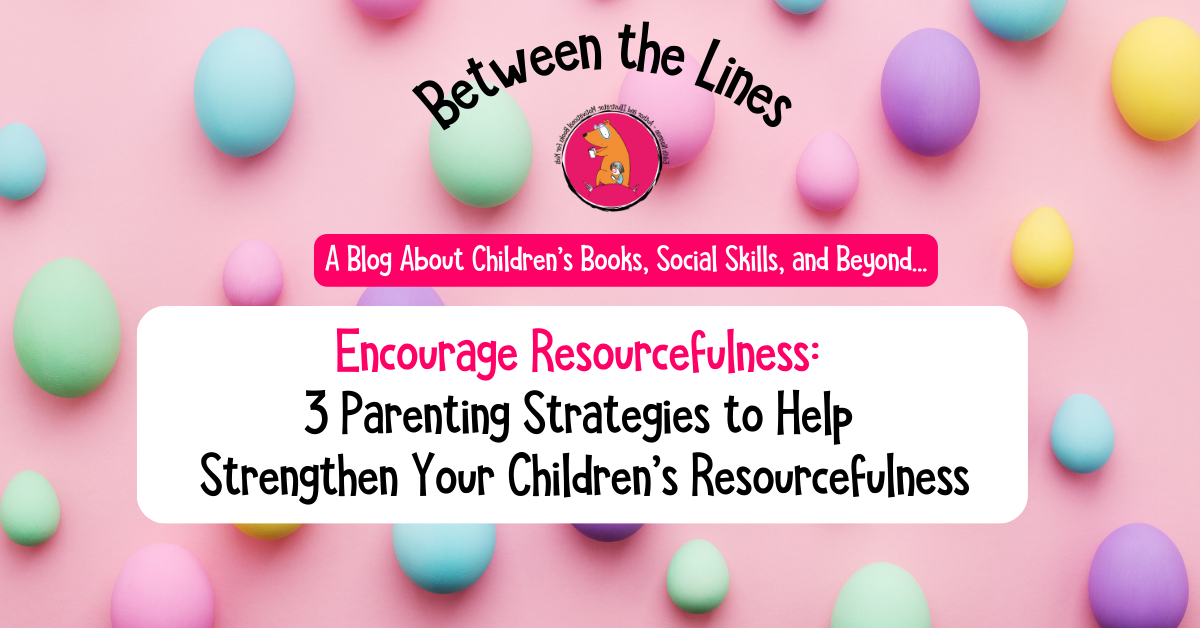As we’ve seen in the previous post about Resourcefulness, it is undoubtedly the most important life skill for our kids’ personal development.
Luckily, we can encourage and strengthen their resourcefulness abilities by exercising 3 simple yet powerful parenting strategies.
Ask yourselves: Do your children occasionally face difficult situations or challenges? Do they welcome the challenge and enjoy finding a solution, or do they stand helpless before it?
This article will guide you through 3 useful parenting strategies that will help you encourage their resourcefulness. Feel free to read, apply, and share.
Resourcefulness is a key component of children’s ability to handle challenging situations successfully. It provides them with a framework for problem-solving and tackling challenges, backed by the enjoyment of the process; creative thinking that allows them to find “outside the box” solutions; and the perseverance needed to give their determination the time required to lead the effort to a solution, even when the path is full of obstacles.
The result? Resourcefulness strengthens children’s self-confidence and teaches them that no matter what, they can face any challenge, big or small. Resourcefulness equips children with the ability to remain calm under pressure and exhibit mental flexibility.
However, developing resourcefulness in children is not self-evident, especially at a young age, and many children may feel helpless when faced with complex problems or may be quick to give up when things don’t go as planned right away. The big question, then, is how can we, as parents, help our children develop this critical skill? Well, here we go.
Encourage Resourcefulness: 3 parental strategies to tackle the 3 essential components of resourcefulness.
As parents, we play a central role in developing our children’s life skills, including the skill of resourcefulness. Through guidance, support, and the application of appropriate parental strategies, we can help them develop a growth mindset, creative thinking, and perseverance, which will strengthen their resourcefulness muscle.
Encourage Resourcefulness: Parental Strategies for Strengthening a Growth Mindset
Goal: To help children understand that success results from effort and that with commitment, determination, and perseverance, they can successfully face any challenge.
The Strategy:
- Challenge the children gradually: Present the children with tasks that challenge them at a level of difficulty that pushes them but allows them to complete the task. Gradually increase the level of difficulty and the challenge in completing the task.
- Praise the effort, or the result that the effort allowed: As children try and fail—praise them for their effort and determination in taking on the challenge. For example: “Well done for not giving up and continuing trying to solve the challenge with determination and persistence.” As the children complete the task—praise them for the effort and determination that led to success. For example: “Well done for completing the task, thanks to your impressive effort and determination.”
- Encourage the children to view failures as learning opportunities: When something doesn’t work out, encourage them to learn from their mistakes and try again differently. For example: “It’s interesting to see what you learned from the challenge that didn’t work out and how you’ll apply that learning next time.”
By consistently reinforcing their efforts, children will learn to appreciate the impact of effort and learning on developing their abilities. They will understand the contribution of failures to their ability to grow and advance.
Encourage Resourcefulness: Parental Strategies for Strengthening Creative Thinking in Children
Goal: To encourage children to think “outside the box” and find creative solutions to problems they encounter.
The Strategy:
- Ask thought-provoking questions: Present children with open-ended questions that invite them to think about different solutions to the problem. For example: “What other solutions could help you build a tall and stable tower?”
- Encourage children to explore different possibilities: Help children explore different approaches to solving the problem, even if they seem unconventional. For example: “What strange or funny approaches could you try to solve the problem?”
- Give children a supportive space for trial and error on the way to a solution: Instead of giving them solutions, let the children try different ideas on their way to discovering for themselves the solutions that are most suitable and effective for them, even if it takes time. For example: “What solutions that helped you in other areas could you try in building your tower?”
By using open-ended questions and encouraging children to explore different solutions, even if they are unconventional, you show that there is more than one way to approach a problem, and you open up their ability to think “outside the box” and develop creative thinking.
Encourage Resourcefulness: Parental Strategies for Strengthening Perseverance in Children
Goal: To foster in children the ability to keep trying and acting even when faced with difficulties, and not to give up easily.
The Strategy:
- Break the task into smaller steps over time: Help children break down large tasks into smaller, more manageable steps to make them easier to complete. For example: “How could you break down building the tower into smaller steps, so you can complete it slowly but surely?”
- Accompany the process with reinforcement for sticking to the plan: Encourage children to keep going by providing reinforcement for each completed step. For example: “Every time you successfully add a new piece to the tower, you can give yourself a sticker on your progress chart.”
- Strengthen mental resilience: When children are frustrated or tired, suggest taking a brief break for an enjoyable activity, like playing or taking a walk with the dog, and then returning to the task with renewed energy. For example: “When you’re feeling tired, take a brief break to recharge, and then come back to complete the task with fresh energy.”
By consistently using the strategies of breaking tasks down, reinforcing progress, and taking breaks to refresh, children will develop the resilience and persistence needed to keep going, ultimately strengthening their resourcefulness.
Bottom line
Resourcefulness is undoubtedly the most relevant skill for facing challenges, solving problems, and finding creative solutions to complex situations. This is especially true for children, as building resourcefulness is one of the most important skills for their personal development, for the same reasons.
As you’ve learned from the article, you can encourage your kids’ resourcefulness abilities with 3 focused parental strategies, based on practical practice, empowering language, and open-ended questions.
The Flamingo That Lost Its Pink
Resourcefulness, creative thinking, and perseverance are at the heart of this lovely story about Elaine and her brother, who come together to help their flamingo friend, that arrived from afar and lost its pink on the way.
The book is the third in the series “The Little Heroes,” which offers readers a glimpse into essential life skills in a light-hearted way, combining bright illustrations, charming rhymes, and a rhythmic flow perfect for shared bedtime reading.
This is a charming book about friendly commitment, resourcefulness, and determination against all odds, which will equip your children with useful tools for facing challenges and difficulties, through listening, caring, and a lot of goodwill.
Now It’s Your Turn
Have you enjoyed the article? Share it with friends.
Do you want to strengthen your children’s ability to face challenges and difficult situations successfully? Click the pink button now and purchase for them the book “The Flamingo That Lost Its Pink”.

